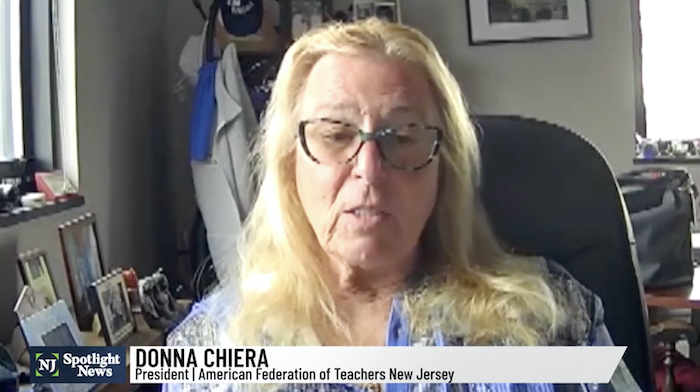Similar to the faculty unions at Rutgers University, the adjunct professors, graduate students and postdoctoral students at New Jersey Institute of Technology have been working about nine months under an expired contract.
But unlike those Rutgers unions, NJIT instructors don’t appear to be close to anything resembling a framework for a new contract.
“We’ve been trying to negotiate with [the administration], in good faith, and we put out our proposals last October,” NJIT adjunct Scott Kent told NJ Spotlight News in a segment that aired April 19. “They didn’t respond to us until a couple of weeks ago. To be honest with you, you know what they offered for a raise this current year? Zero. Nothing.”
NJ Spotlight News correspondent Ted Goldberg reported in the segment that “folks at NJIT [say a strike] is a last resort, but it hasn’t been ruled out.”
In the wake of the five-day walkout by Rutgers faculty unions, AFTNJ President Donna M. Chiera realizes that such a step is possible at NJIT and other New Jersey colleges where contract negotiations are going nowhere.
“I think the actions taken last week by the [Rutgers faculty unions] made [our other higher education] members and leaders say, ‘We shouldn’t be afraid to strike if we need to strike,’ ” she told Goldberg.
Chiera also renewed the call for a chancellor or commissioner of higher education in New Jersey — a person who has “the authority to see what universities are doing” with their budgets. Without someone ensuring fiscal responsibility, she added, “we’re going to continue to be in the same path we are today,” where universities receive funding through the state, and their presidents and boards of trustees make the decision on how that money is invested on campus sans oversight.





